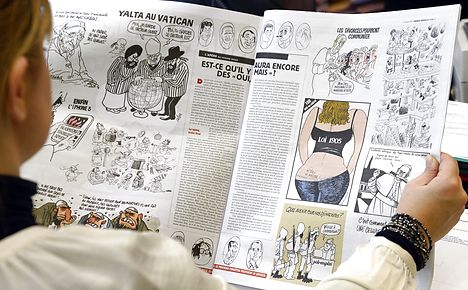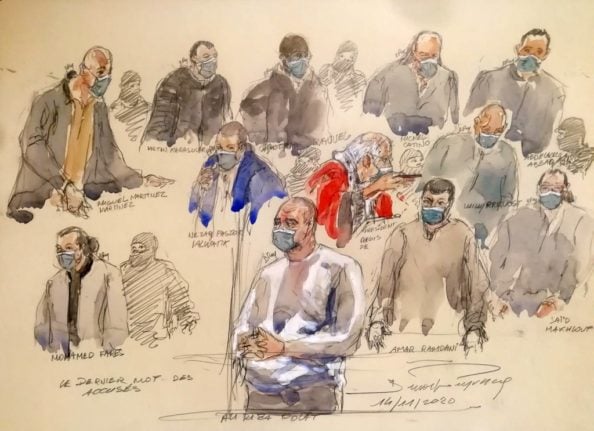CHARLIE HEBDO
Huge Danish demand for new Charlie Hebdo issue
So many people in Denmark have asked about the new edition of Charlie Hebdo that the magazine distribution company is trying to massively increase its order to meet demand.
Published: 15 January 2015 10:02 CET

The first issue of Charlie Hebdo to be published since a jihadist attack decimated its editorial staff last week was sold out within minutes at kiosks across France. Photo: AFP/Bertrand Guay/Scanpix
Massive interest in the ‘survivor’s edition’ of French satirical magazine Charlie Hebdo has led a Danish magazine distribution company to up its order tenfold.
Magazine distribution company Bladkompagniet originally ordered 300 copies of the first edition of the French weekly since its staff were murderously attacked by Islamist gunmen last week. But overwhelming demand among Danish customers has the company requesting ten times that amount.
“We have had Charlie Hebdo as a single copy product before but we went a long period without it because the interest in Denmark simply wasn’t there. So when we had the opportunity to bring 300 copies home to Denmark, we did that with the expectation that it would be enough, but in the course of the last 24 hours we were forced to reevaluate that view,” Bladkompagniet's CEO Christian Lanng told Berlingske.
“Therefore we have chosen to start the process of getting more copies to Denmark. We anticipate that we can sell 3,000 copies of Charlie Hebdo here at home so that’s what we are trying to get without knowing whether it will be possible,” he continued.
Lanng said he didn’t know if, when or where the extra copies would be available in Denmark but said the original order of 300 copies would be out by Friday morning.
The front page of this week's Charlie Hebdo, which The Local has decided not to reprint, shows a cartoon of the Prophet Muhammad crying and holding up a "Je suis Charlie" sign under the words: "All is forgiven”. It hit French shelves one week after two terrorists killed 12 people in Paris, including five of the magazine’s top cartoonists.
Heavy demand for the edition has led the magazine to up its distribution run to five million from its normal 600,000. The "survivors' edition" will be made available in 25 countries and translated into 16 languages because of international demand. The magazine will not be translated into Danish and will be sold in Denmark in its original French.
The ’survivor’s edition’ of Charlie Hebdo can be seen in its entirety here.
To limit the overwhelming burden on our moderators, it will not be possible to comment on this article. Feel free to join the conversation on our Facebook page.
Url copied to clipboard!


 Please whitelist us to continue reading.
Please whitelist us to continue reading.